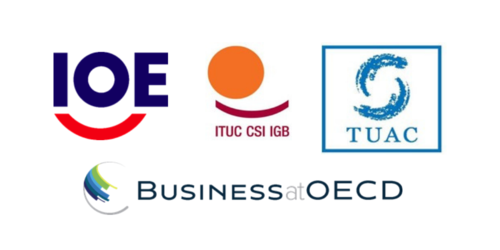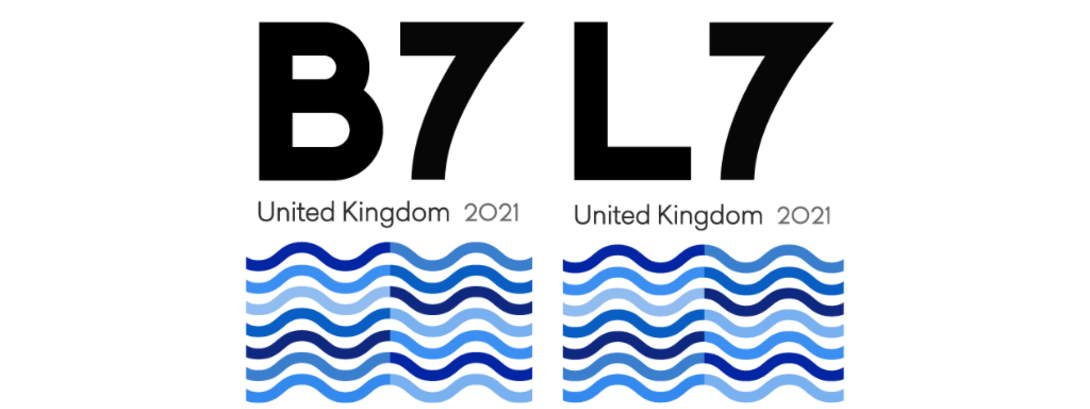B7-L7 partners urge G7 leaders to work with social partners on job creation, decent work, skills development and entrepreneurship
The B7 and the L7 have released a joint statement to G7 heads of state.
COVID-19 continues to deeply impact G7 economies and labour markets in 2021, which face the worst social, health and economic challenge in decades. This moment demands global unity in the face of adversity. G7 2021 is a unique opportunity to build back better. For the B7 and L7 alike, this means delivering a sustainable and inclusive recovery with decent work for all. This statement follows the 2019 B7-L7 and G7 social tripartite declarations, and represents our commitment to strengthening social dialogue to deliver the recovery.
Sustainable and inclusive economic recovery can only happen with successful vaccination programmes taken up across the globe. The G7 therefore needs to address both the ongoing crisis and work with social partners to deliver more conducive policy frameworks for job creation, decent work, skills development and entrepreneurship.
To make this a reality, the B7 and L7 call on the G7 to prioritise:
- Education & skills – Rapid technological adoption and advancement is changing the world of work, accelerated by COVID-19. Transitioning to a net-zero economy also requires new skills. Inadequate retraining and lifelong-learning risks exacerbating skills shortages at a time of rising unemployment. Employability must be a key focus of education and training systems, with provision that gets people into work and offers life-long learning improved with the involvement of social partners in its design and governance. G7 countries need to enable more opportunities for quality vocational training and lifelong learning, including through public investment in education and skills.
- Green jobs – As governments set clear and ambitious climate targets ahead of COP26, attention needs to turn to decarbonising the critical sectors that underpin the global economy and promoting the growth of new green sectors. This presents opportunities for quality job creation, reskilling, upskilling and entrepreneurship. To harness them, G7 support is needed to enable a just transition of workers from carbon intensive roles and occupations into new ones and to provide them with the skills and social protection they need.
- Active labour market policies and ongoing support during COVID-19 – Creating the conditions for job creation, innovation and entrepreneurship by promoting inclusive active labour market policies will help workers and business deal with the ongoing economic fallout of COVID-19, and young people to enter the labour market. To overcome the impact of rising global cases and to secure long-term recovery, economic support will still be required by sectors and communities across G7 countries most affected by COVID-19 induced lockdowns.
- Remote, hybrid working and telework – COVID-19 has increased reliance on digital systems for work like never before, and highlighted the impact of unequal digital access on workers, firms and entrepreneurship. To promote new ways of working that bring fair flexibility and decent job opportunities for many, G7 countries need to invest in digital infrastructure and reliable high-capacity internet connections, especially in rural areas, and address digital divides among households and workers. Consulting with social partners, the G7 member states also need to enact negotiated working time arrangements to ensure workers’ wellbeing.
- Workforce health and safety – COVID-19 has thrown the importance of public health into sharp relief, and the role employers can play in better supporting the health of their workers. To unlock the benefits for businesses, workers, communities and the economy, G7 countries need to enable greater investment in public health systems including in proactive occupational health & wellbeing, including mental health, and recognise the importance of providing adequate financing and access to ensure social protection.
- Meaningful social dialogue – Representative business and workers organisations have informed and co-steered economic responses to COVID-19 across G7 nations. Their membership insight, networks and communications, as well as policy agreements on occupational health and safety, job retention scheme coverage, active labour market and training policies, have been a lifeline to workers and business leaders at a time of unprecedented uncertainty. The G7 member states must support strong representative workers and business organisations to the benefit of policy-making, recognising that workers and employers enjoy freedom of association and collective bargaining.
- Diversity and inclusion at work – COVID-19 has exposed the existing inequalities in our societies, with women, young people and ethnic minority workers disproportionately represented in sectors hit the hardest. Achieving decent work for all requires the advance of racial justice and gender equality in the workplace, which G7 countries can support through conducive policy frameworks and transparency measures, and by making a strong statement about the importance of this goal.
- Responsible business conduct – Supply chain interdependencies are the fabric of today’s globalised economy. The G7 member states must demonstrate leadership in increasing efforts to promote the uptake of the UN Guiding Principles and the OECD MNE Guidelines by both government and business.




